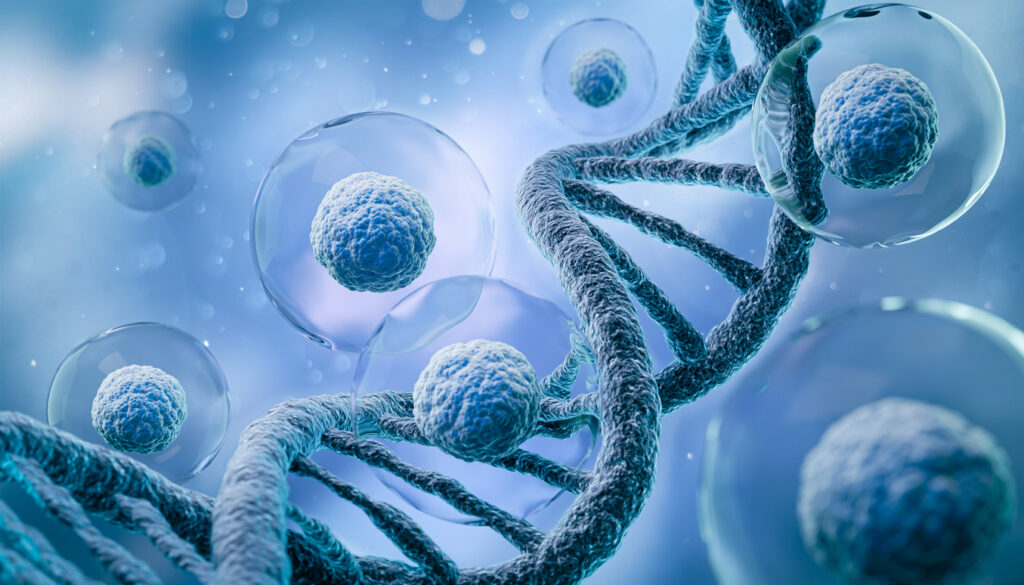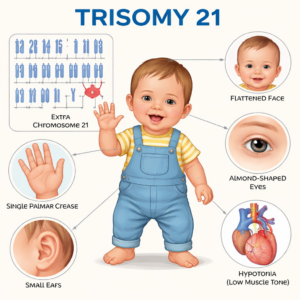As parents, we always want the best for our children, especially when it comes to their health. Learning that your child may have a genetic disorder can be challenging and confusing. One of the biggest questions parents ask is: Is this something our child inherited, or did it happen spontaneously? Understanding the difference between inherited and spontaneous genetic disorders can help parents navigate their child’s diagnosis and care.
What Are Genetic Disorders?
Genetic disorders are medical conditions caused by changes (mutations) in a person’s DNA. These mutations can affect how the body develops and functions, leading to a wide range of health issues. Some genetic disorders are inherited, meaning they are passed down from parents, while others occur spontaneously without a family history.
Inherited Genetic Disorders
Inherited genetic disorders are passed from parents to children through genes. These conditions follow specific inheritance patterns, such as:
- Autosomal Dominant: A child only needs to inherit one copy of the mutated gene from one parent to develop the disorder. Examples include Marfan syndrome and Huntington’s disease.
- Autosomal Recessive: A child must inherit two copies of the mutated gene (one from each parent) to be affected. Examples include cystic fibrosis and sickle cell anemia.
- X-Linked: These disorders are linked to genes on the X chromosome, meaning they often affect males more than females. Examples include Duchenne muscular dystrophy and hemophilia.
If a disorder runs in the family, genetic testing and counseling can help parents understand the risks of passing it on to their children.
Spontaneous (De Novo) Genetic Disorders
Not all genetic disorders are inherited. Some occur due to spontaneous (de novo) mutations, meaning they happen randomly during conception. These mutations are not present in the parents’ DNA but appear for the first time in the child.
Spontaneous genetic disorders can happen for a variety of reasons, including:
- Errors during DNA replication
- Environmental factors during pregnancy (though rare)
- Unknown causes
Examples of spontaneous genetic disorders include Down syndrome, Rett syndrome, and some cases of autism with genetic mutations. Because these mutations are not inherited, parents typically do not pass them on to future children unless they occur in their reproductive cells.
Key Differences Between Inherited and Spontaneous Genetic Disorders
| Feature | Inherited Genetic Disorders | Spontaneous (De Novo) Genetic Disorders |
|---|---|---|
| Cause | Passed down from one or both parents through genes | Caused by new (de novo) mutations that occur during conception |
| Family History | Often present in family history | Usually no prior family history |
| Mutation Origin | Inherited from parent(s) | Mutation arises in the egg, sperm, or early embryo |
| Risk to Siblings | Higher if parents are carriers or affected | Generally low unless mutation is in reproductive cells |
| Examples | Cystic fibrosis, sickle cell anemia, Marfan syndrome, hemophilia | Down syndrome, Rett syndrome, some autism-related mutations |
| Inheritance Pattern | Follows known patterns (autosomal dominant, recessive, X-linked) | Does not follow classic inheritance patterns |
| Detection | Often identified through family history and genetic testing of relatives | Requires sequencing of child’s DNA and comparison with parents’ DNA |
How Can Parents Know If a Disorder Is Inherited or Spontaneous?
Determining whether a genetic disorder is inherited or spontaneous often requires genetic testing. Doctors may recommend:
- Family history review: Checking if the condition has appeared in previous generations.
- Genetic testing for parents and siblings: Looking for the same mutation in close relatives.
- Whole-exome sequencing: Analyzing a child’s entire genetic code for unique mutations.
If no family history exists and the mutation is new in the child, it is likely a spontaneous mutation.
Understanding the difference between inherited and spontaneous genetic disorders can help parents make informed decisions about their child’s health. Whether a condition runs in the family or happens by chance, early diagnosis and proper medical care can make a significant difference in a child’s life. If you have concerns about genetic conditions, talking to a genetic counselor or doctor can provide clarity and support for your family.



